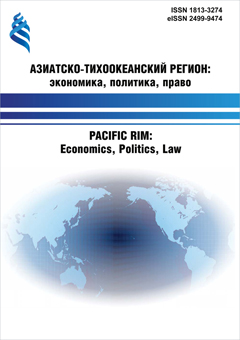Change of jurisdiction in criminal proceedings and its role in ensuring the constitutional right to a lawyer trial
DOI:
https://doi.org/10.24866/1813-3274/2025-3/168-175Keywords:
jurisdiction, right to a legal trial, change of jurisdiction, criminal proceedings, criminal case, grounds for changing jurisdiction, jurisdiction of petition, jurisdiction of complaints, transfer of criminal case, determination of jurisdictionAbstract
In accordance with Part 1 of Article 47 of the Constitution of the Russian Federation, Part 3 of Article 8 of the Criminal Procedure Code of the Russian Federation, everyone has the right to have a criminal case heard by the court and the judge to whose jurisdiction it is assigned by law. However, during criminal proceedings, circumstances may arise that prevent the case from being heard by the court and the judge that are predetermined by the general rules on jurisdiction. The article analyzes the history of the emergence of a sub-institution of criminal procedural jurisdiction – a change in the jurisdiction of criminal cases. The provisions of the previously existing criminal procedural legislation are analyzed for the presence of similar sub-institutions. It is concluded that the term "change of jurisdiction" in relation to criminal proceedings was first used in the Resolution of the Constitutional Court of the Russian Federation dated 16.03.1998 No. 9-P, and the sub-institute under consideration appeared in the criminal procedural legislation only with the adoption of the Criminal Procedure Code of the Russian Federation of 2001. The article summarizes the legal positions of the Constitutional Court of the Russian Federation regarding changes in jurisdiction in criminal proceedings, the consideration of which is one of the most important factors in ensuring the implementation in Russian criminal proceedings of the right to have a case considered by the court and the judge to whose jurisdiction it is assigned by law. The issue of interpretation of the rules on changes in jurisdiction in criminal proceedings in law enforcement practice is considered. In particular, an example of an expansive interpretation of Article 35 of the Criminal Procedure Code of the Russian Federation and the possibility of its application at virtually all stages of criminal proceedings are given. Possible practical problems related to the establishment of jurisdiction of petitions of preliminary investigation bodies for the future by the court resolving the issue of changing jurisdiction are examined. A conclusion is made about the inadmissibility of such a practice, since a court decision establishing jurisdiction for only one party to a criminal proceeding contributes to the violation of the balance of interests of the participants in criminal proceedings.
Downloads
References
1. Быданцев Н.А. «О перенесении дел». Преемственность в вопросе изменения подсудности уголовных дел // 160 лет Великой судебной реформе: материалы междунар. науч.-практ. конф., Иркутск, 22 нояб. 2024 г. / под ред. Ю.В. Виниченко, Е.В. Карпеевой, Р.В. Мазюка. Иркутск, 2025. С. 25–30.
2. Гусев Л.Н. Подсудность уголовных дел. М., 1955. 111 с.
3. Строгович М. С. Курс советского уголовного процесса. Том 1. М., 1968. 470 с.
4. Головко Л. В. Институт подсудности в уголовном процессе: границы между ценностным и техническим измерением // Институт подсудности в уголовном процессе: материалы I Всероссийской научно-практической конференции «Актуальные проблемы российского уголовного процесса», г. Москва, 29 марта 2024 года. М., 2024. С. 5–14.
5. Чекулаев Д.П. Критерии для определения территориальной подсудности уголовного дела: доктринальные вопросы и нормативные пробелы // Институт подсудности в уголовном процессе: материалы I Всероссийской научно-практической конференции «Актуальные проблемы российского уголовного процесса», г. Москва, 29 марта 2024 года. М., 2024. С. 116–130.
6. Калиновский К.Б. Изменение территориальной подсудности жалобы и ходатайства // Уголовный процесс. 2023. № 1. С. 11.
Downloads
Published
Issue
Section
License
Copyright (c) 2025 Екатерина Евгеньевна Коновалова

This work is licensed under a Creative Commons Attribution-NonCommercial 4.0 International License.


